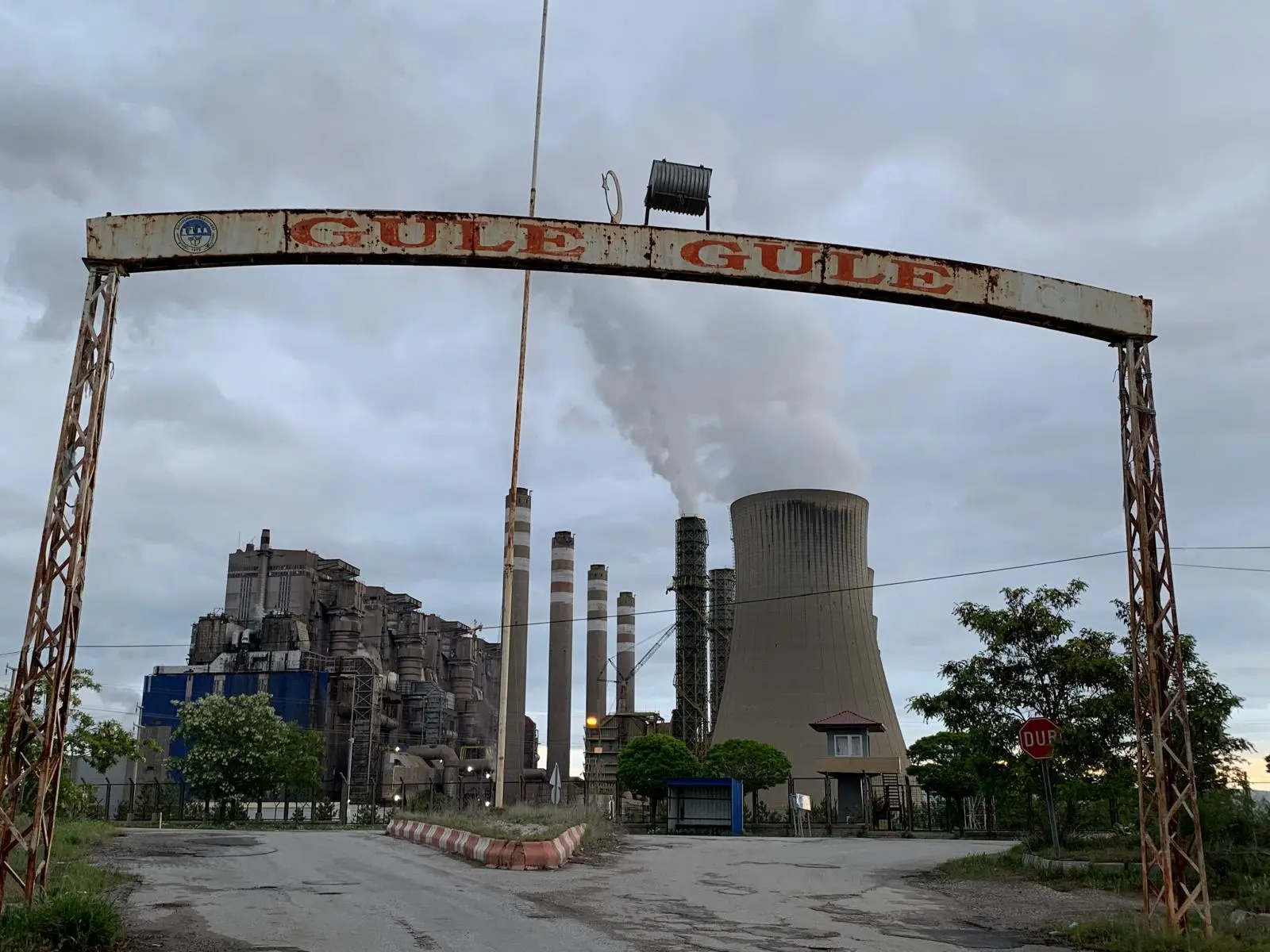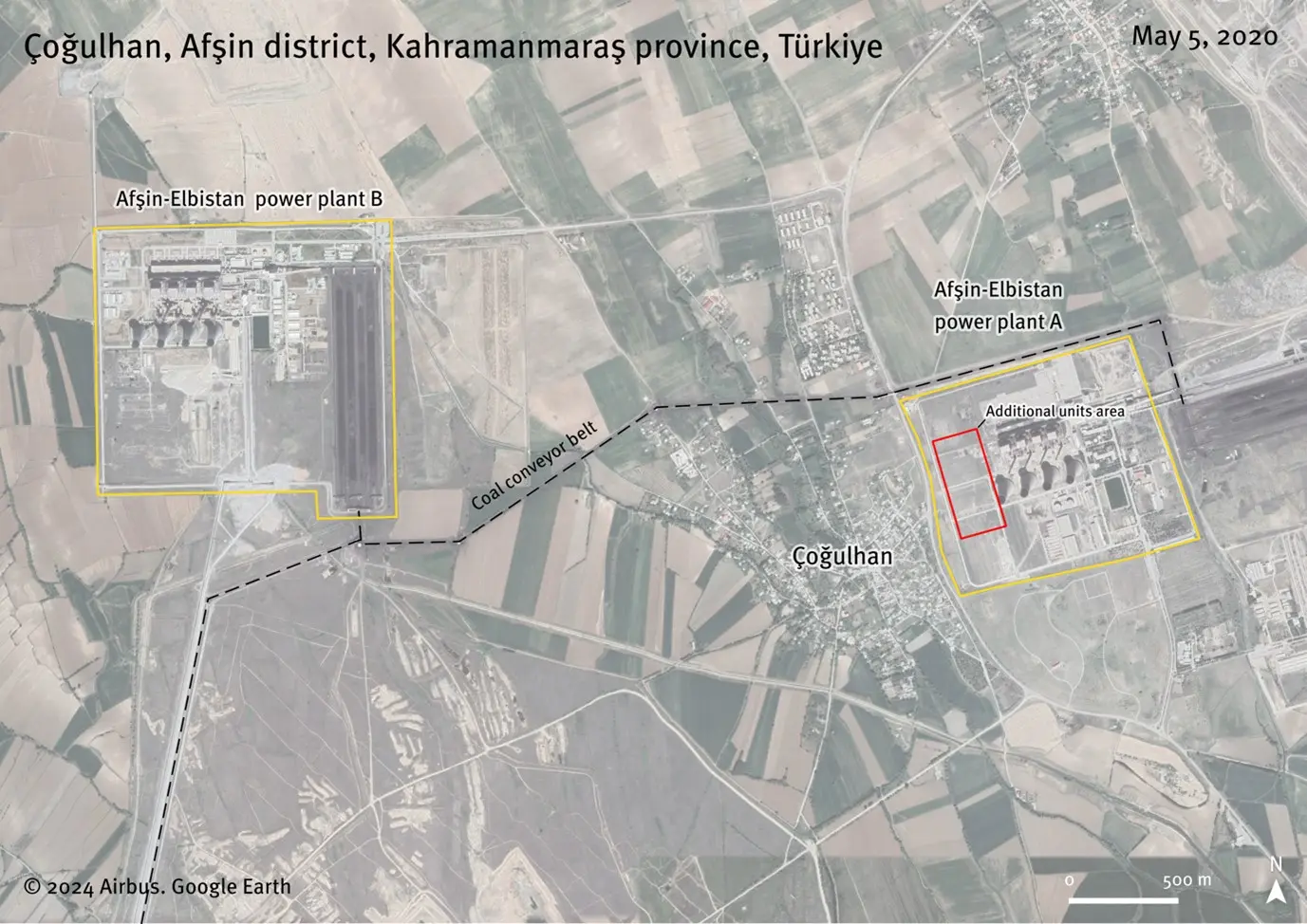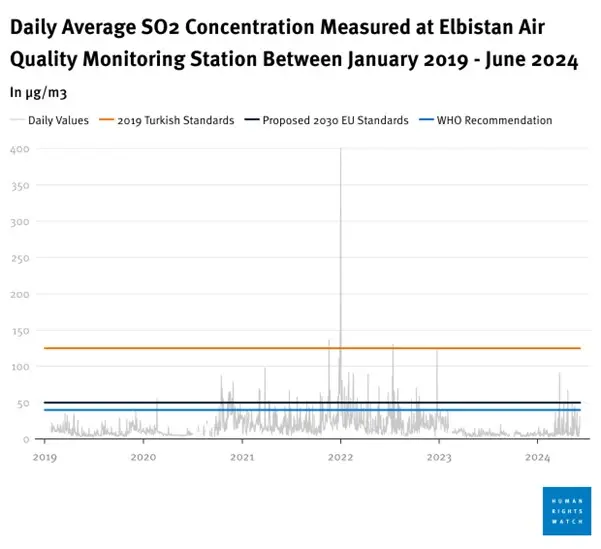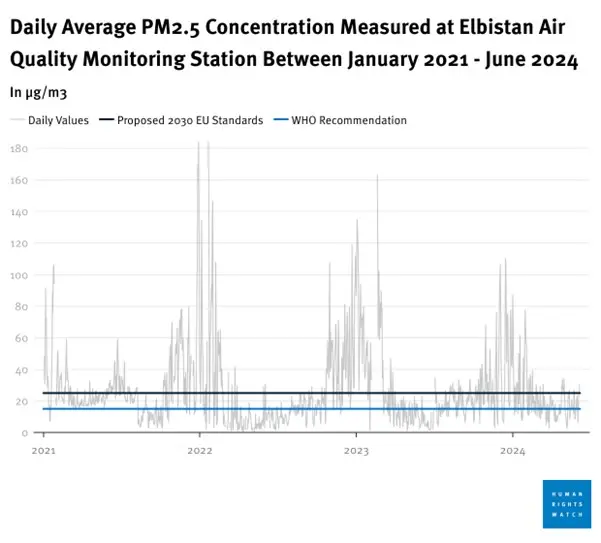
Human Rights Watch (HRW) has called on Türkiye’s Environment Ministry to halt plans for the expansion of the Afsin-Elbistan coal power plant in Kahramanmaras province due to the severe health impacts on local communities.
HRW's research reveals dangerously high air pollution levels near the plant and a nearby facility, leading to increased respiratory and cardiovascular diseases among residents.
Residents living close to the coal plants reported significant health issues, including cancer and respiratory ailments. One resident, a 57-year-old man from a nearby village, stated, “I have asthma, and my doctor says I need clean air. But there is no clean air. We are all ill here.”
Local health professionals have also observed a rise in respiratory diseases, particularly among children and elderly people, living near the plants.

HRW expressed its concern over the planned addition of two more units to plant A, which is located 2.5 kilometers from plant B.
“Toxic air from coal power plants is killing thousands of people every year in Türkiye while authorities do little to prevent the problem or even to warn people of the harm to their health,” saidHugh Williamson, Europe and Central Asia director at Human Rights Watch. “Instead of authorizing the expansion of polluting coal power plants, the Turkish government should strengthen and enforce air quality standards and enable a just transition from coal to renewablesby2030.”
The report highlights that despite a government warning in the early 2000s predicting a "cancer explosion" in the Afsin-Elbistan region, there has been insufficient action to mitigate the pollution caused by the coal plants. HRW has urged Türkiye to focus on stricter air quality standards and a complete transition to renewable energy by 2030.
Türkiye’sair quality standards are less strict than those recommended by WHO and do not include a limit for the harmful PM2.5 pollutant,responsible for the most deathsworldwide of any pollutant, leaving a major regulatory gap.

Despite the significant health risks associated with coal power, Türkiye remains reliant on coal for 36% of its electricity production as of 2022. The Afsin-Elbistan coal mine, which supplies these power plants, is one of the world’s largest fossil fuel projects, with an extraction capacity of 4.09 gigatons of carbon dioxide.
HRW noted that Türkiye's renewable energy capacity has grown significantly, with renewable sources accounting for 54% of the country’s installed electricity capacity, far exceeding the global average of 30%. However, Türkiye’s National Energy Plan has yet to outline a clear phase-out from coal, despite its Paris Agreement obligations.
The government is continuing to expand coal plants notwithstanding significant progress in Türkiye’s renewable energy sources that research has shown would enable Türkiye toexit coal by 2030. Renewable energy sources currently make up54% of Türkiye’sinstalled electricity capacity, significantly above theglobal average of about 30%, and the International Energy Agencyprojects renewable energy use to increase 50% between 2021 and 2026.


HRW reviewed air quality data from governmental monitoring stations, which confirmed that pollution levels near the Afsin-Elbistan plants were dangerously high. In addition, satellite data from the EU Copernicus program showed that sulfur dioxide (SO2) concentrations in the area exceeded levels recorded in other regions.
Residents reported that little information is provided to them about the health risks posed by the coal plants. Hacikiz Savran, a 70-year-old woman living near the plant, expressed frustration at the lack of communication: “My doctor was surprised to hear that I had never smoked in my life. He said, ‘Why did you become (this sick) if you never smoked?’”
The coal plants have also operated for years without the required emission-reducing technologies. Although some filters have been installed since the plant temporarily closed in 2023, there are concerns that the new units will exacerbate pollution levels.

Despite the environmental and health risks, Türkiye’s Environment Ministry is expected to approve the construction of two new units at Afsin-Elbistan A, adding 688 megawatts of capacity. This expansion is expected to lead to around 1,900 premature deaths over the plant’s 30-year lifespan, according to a 2022 study commissioned by Greenpeace Mediterranean.
HRW criticized the lack of public consultation regarding the plant expansion. Residents and even municipal authorities were reportedly not consulted, a violation of Turkish regulations.